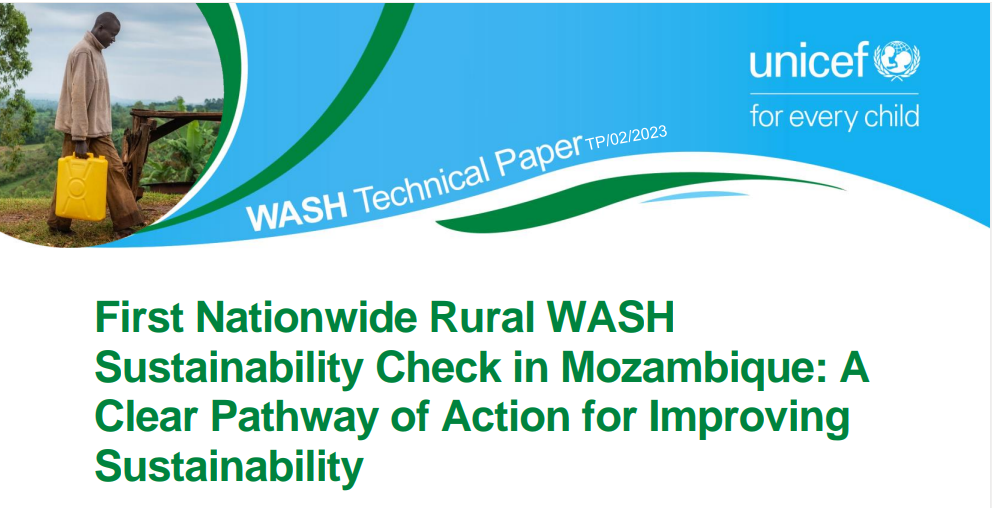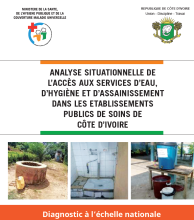Technical Paper: First Nationwide Rural WASH Sustainability Check in Mozambique: A Clear Pathway of Action for Improving Sustainability

Mozambique conducted its first Nationwide Sustainability Check between November 2021 and July 2022. The data collection was carried out between November 2021 and January 2022. This exercise sought to understand the different factors influencing the sustainability of rural water and sanitation infrastructure, services and behaviours in order to provide informed recommendations. In each of the three provinces - Inhambane, Zambezia and Nampula – three districts were selected to cover the northern, central and southern regions. A total of 195 community-managed hand pumps and 90 open defecation free (ODF) communities were assessed in the nine selected districts.
Regarding rural water infrastructure, the study has shown that:
- 86.6 per cent of water points were functional at the time of the visit. However, most water points visited (73.7 per cent) reported one to five breakdowns in the last 12 months, 43 per cent of these breakdowns lasted at least six days. Most of these water points were constructed 10 years ago.
- The overall sustainability score for rural water points across the country is 66.1, which ranks as average. Technical factors scored at the lowest level (55.6), followed by financial (65.8) and institutional (68.9) factors. Some variables that negatively influence these results are: only 34 per cent of District Planning and Infrastructure Service (SDPI) is providing post-construction support to the communities; only 45.4 per cent of communities have a system to report breakdowns; and only 36 per cent of operational water points have spare parts in stock.
Based on the study, key recommendations for actors involved in water supply are:
- At national level, under the responsibility of the National Directorate of Water Supply and Sanitation (DNAAS), integrate a sustainability analysis and establish a system to report breakdowns in realtime into the National Water and Sanitation Monitoring Platform (SINAS).




